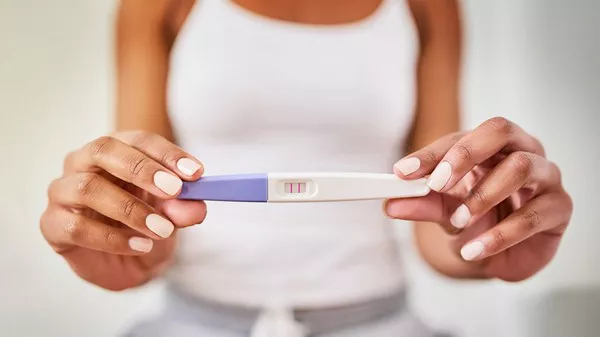Intrauterine insemination (IUI) is a commonly used fertility treatment that involves placing sperm directly into the uterus to facilitate fertilization. Following the procedure, patients often wonder when they can take a pregnancy test to determine if the treatment was successful. Understanding the optimal timing for testing after IUI can help alleviate anxiety and provide clarity during the waiting period. In this article, we will explore the factors influencing the timing of pregnancy testing after IUI and provide guidance on when to test for the most accurate results.
Factors Influencing Timing of Pregnancy Testing:
Several factors influence the optimal timing for pregnancy testing after IUI, including the following:
1. Ovulation Timing:
The timing of ovulation plays a crucial role in determining when pregnancy testing should occur after IUI. In most cases, IUI is performed within a specific window of time, typically around the time of ovulation. Knowing the precise timing of ovulation is essential for determining when fertilization may have occurred and when pregnancy testing is most likely to yield accurate results.
2. Sperm Survival:
Sperm can survive in the female reproductive tract for several days after insemination, increasing the likelihood of fertilization occurring after the procedure. Understanding the lifespan of sperm can help predict the optimal timing for pregnancy testing and improve the accuracy of test results.
3. Implantation Timing:
After fertilization, the embryo must implant into the uterine lining to establish pregnancy successfully. Implantation typically occurs 6-10 days after ovulation, although the exact timing can vary from one individual to another. Waiting until after the expected implantation window can improve the accuracy of pregnancy testing and reduce the risk of obtaining false-negative results.
4. Human Chorionic Gonadotropin (hCG) Levels:
Human chorionic gonadotropin (hCG) is a hormone produced by the developing placenta following implantation. Pregnancy tests detect the presence of hCG in urine or blood to confirm pregnancy. It takes time for hCG levels to rise to a detectable level after fertilization, so testing too early may yield false-negative results. Waiting until hCG levels are sufficiently elevated can improve the accuracy of pregnancy testing after IUI.
When to Test After IUI:
The optimal timing for pregnancy testing after IUI depends on various factors, including the individual’s menstrual cycle, ovulation timing, and personal preferences. However, the following guidelines can help determine when to take a pregnancy test after IUI:
1. Wait at Least 14 Days:
It is generally recommended to wait at least 14 days after IUI before taking a pregnancy test. This waiting period allows sufficient time for ovulation, fertilization, and potential implantation to occur, ensuring that hCG levels are detectable by the time of testing. Testing too early may result in false-negative results and unnecessary anxiety.
2. Consider the Trigger Shot:
Many fertility treatments, including IUI, involve the use of a trigger shot to induce ovulation. The trigger shot contains synthetic human chorionic gonadotropin (hCG), which can affect the timing of pregnancy testing. It is essential to consider the timing of the trigger shot when determining when to test after IUI. In most cases, hCG from the trigger shot will be metabolized and cleared from the body within 10-14 days, so waiting at least 14 days after the trigger shot is recommended for accurate testing.
3. Monitor Symptoms:
While waiting for the appropriate time to test, it can be helpful to monitor for early pregnancy symptoms, such as breast tenderness, fatigue, nausea, and frequent urination. While these symptoms are not definitive indicators of pregnancy, they may provide clues that implantation has occurred and that testing may be appropriate.
4. Use a Sensitive Pregnancy Test:
When testing for pregnancy after IUI, it is essential to use a sensitive and reliable pregnancy test to ensure accurate results. Early detection pregnancy tests are designed to detect lower levels of hCG and may provide more accurate results earlier in the testing window. Be sure to follow the manufacturer’s instructions carefully when using a home pregnancy test to obtain the most reliable results.
See Also: How to Confirm Pregnancy After IUI
Conclusion:
Determining the optimal timing for pregnancy testing after IUI requires careful consideration of ovulation timing, sperm survival, implantation timing, and hCG levels. Waiting at least 14 days after IUI before testing can help ensure that hCG levels are detectable and that test results are accurate. However, it is essential to consider individual factors, such as the use of a trigger shot and the presence of early pregnancy symptoms, when determining when to test. Consulting with a healthcare provider can provide additional guidance and support during the testing process. By understanding the factors influencing timing and following recommended guidelines, patients can navigate the waiting period after IUI with confidence and clarity.


